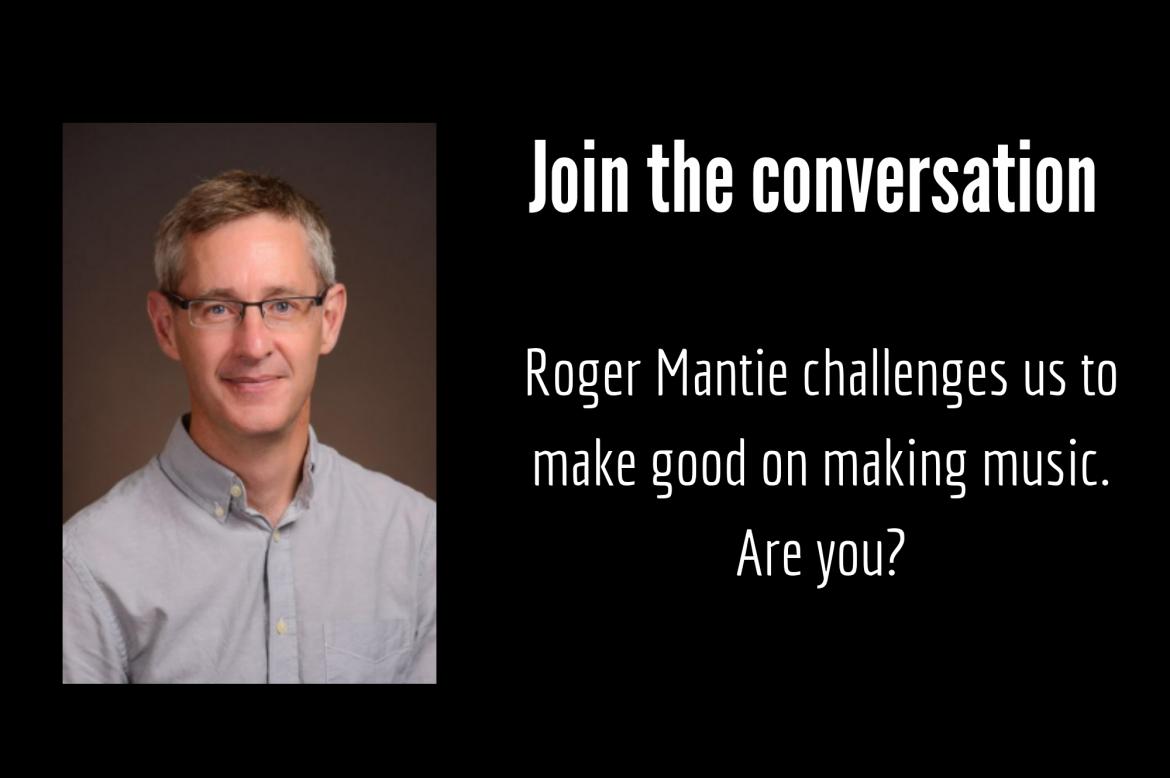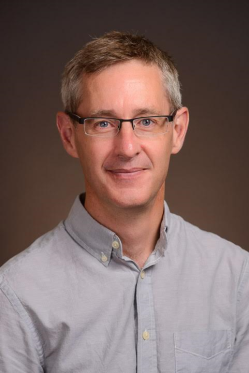Tell me what you do when you are free to do as you like and I shall tell you what kind of person you are. Charles Brightbill
What do you do when not working or doing other obligated tasks like grocery shopping, cleaning the house, child care, and so on? Put simply, what do you do in your free time? For many of us, this question probably results in a slightly indignant chuckle. Free time? What free time?! And yet, no matter how busy we are, we all have some discretionary time, even if it isn’t always as much as we wish. So: what do you do when you are free to choose to do as you like?
For some of us, the answer to this question might be music-related. Presumably, we pursued a vocation in music because we are attracted to music — as teachers, performers, creators, listeners, or other ways that Christopher Small attempted to capture with his term musicking. For many of us, music isn’t just a job, it’s a way of life — a way of being in the world. I know when I was a school music teacher, however, there were many days when I came home from work and the last thing I wanted to do was hear or make music! Having been immersed in an intense sonic environment for eight (often ten) hours a day, what I desired when I came home was anything but music. I wanted to read or get some exercise or do some woodworking. As a university professor, I am no longer subjected to high volumes of sound every day and my interest in making music outside of my “work day” has returned. Unfortunately, the pressures and expectations of university life often preclude the imaginary of “work-life balance,” and I often don’t get to make as much music as I’d like to.
What is important to remember, is that we — by which I refer to the collective we of those for whom music-related activities are our career — are a minority in the world. For most people, engagements with music occur outside the sphere of job, career, and vocation. This is to say that, for the overwhelming majority, music making is something done outside of what is done to earn a living. Before going further, I should acknowledge there are some nuances I am deliberately glossing over. For starters, I have set up a work/not work dichotomy that doesn’t apply to all people. One need only think of the incarcerated, the unemployed, or the retired (among many, many other populations of people) to be reminded that not all lives revolve around the rhythms of employment. I am using the work/not work dichotomy here simply in order to help underscore the issue of choice, the issue of freedom.
Not all people are free (or as free as they’d like) to do as they wish, of course. Research in the field of leisure studies shows that those from middle and upper class backgrounds tend to engage in a wider range of leisure activities and with greater frequency than those from lower class backgrounds. That there is inequality in the world I am sure we can all agree. As music professionals, we might be able to do something about this. I’m not saying we shouldn’t try, but realistically, the historical structural forces that create and sustain inequality likely exceed our limited sphere of influence as music educators. The fact is, some people enjoy greater privilege than others. What we can do in the face of inequality is to exercise our capacity to improve quality of life through music for as many people as we can reach. That is, we can do everything possible to ensure that, regardless of what people do (or don’t do) for a living, or how much freedom they have to do as they wish, we strive to facilitate the development of skills and dispositions for people to incorporate music making as a rewarding part of their daily life.
This is not to suggest or imply excessive and unsupported claims about the “power of music.” Music cannot cure cancer. (I encourage everyone to read Kathryn Deane’s stunning keynote from ISME 2018.) There is mounting evidence, however, that music — and especially music making — is good for people on a variety of levels. Shocking, I know. And yet, sometimes our practices as music educators don’t always result in the kinds of lifelong engagements with music making that can maximize quality of life potential. So many of our practices are, unfortunately, moulded in our image. It is as if we believe that as long as we’ve taught people ta’s and ti-ti’s and Italian sixth chords and sonata-allegro (no, sorry, A-B-A) form we have achieved our mission. It is as if we believe that as long as students have had an “aesthetic experience” at some point or have come to know “art” that we can sleep easy at night. The problem is, just “knowing art” (or how to read music) does little, in and of itself, to improve the daily quality of life for most people. Regularly making music, ideally with others, is what improves quality of life.
I do not doubt that most music educators believe they are instilling a “love of music” in those with whom they work. I suspect, however, that “loving music” too often means loving music as “we” love music. I’ve interviewed a lot of recreational music makers over the years, and I’ve never gotten the sense that people who make music “on the side” (i.e., in their free time outside their primary life activities) do it for the reasons I hear many music teachers espouse about what’s important about music (such as doing “quality repertoire”). Recreational music makers — the ones whose quality of life usually benefits tremendously from musical engagement — tend to make music because, on a very basic level, they love making the music they make (regardless of style, genre, “quality,” etc.).
That some people choose to make music in their discretionary time should tell us something. By sharing diverse music making examples and international, interdisciplinary perspectives, this is what Gareth Dylan Smith and I sought to do in the Oxford Handbook of Music Making and Leisure. That many more people do not choose to make music in their discretionary time should also tell us something, however. Most people do love music, and many people, if given the opportunity (by which I mean the complete package of requisite skills, dispositions, and available options) would make music regularly. That they cannot or do not is a professional failing on our part, one that we continue to neglect.
Admittedly, music is not the only free-time activity that contributes to quality of life, nor is it (or should it be) everyone’s desire to make music in their free time. Different strokes for different folks. One of ISME’s core values, however, is that “access for all people to music learning opportunities and to participate actively in various aspects of music is essential for the wellbeing of the individual and Society.” If this is to be more than empty words (words are easy, action is hard), we need to commit to an agenda of theoretically-informed action that ensures that as many people as possible have experienced the life-affirming and enhancing potential of music making, and that as many people as possible have developed the kinds of skills and dispositions necessary to empower them so that they can and will choose to make music when free to do so.
Roger is a co-editor, with Gareth Dylan-Smith, of the Oxford Handbook of Music Making and Leisure.













